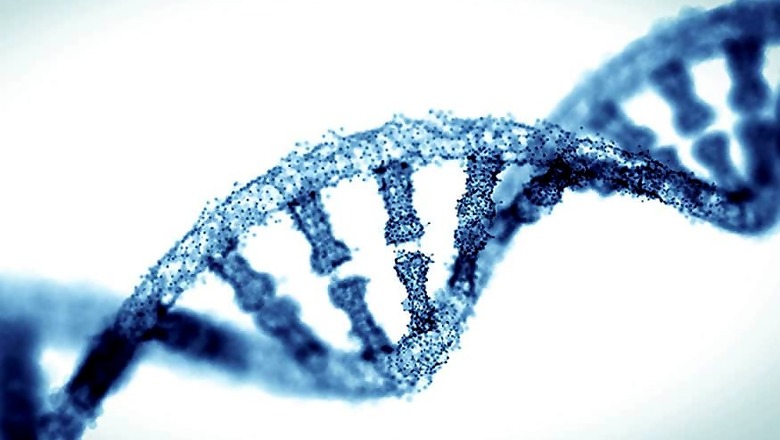
views
The world's first babies whose genes were reportedly altered to help them fend off HIV infection are more likely to die younger, a study claims.
According to an analysis by scientists from University of California (UC)Berkeley in the US, the controversial genetic mutation that a Chinese scientist attempted to create in twin babies born last year is associated with a 21 per cent increase in mortality in later life.
The researchers scanned more than 400,000 genomes and associated health records contained in a British database, UK Biobank, and found that people who had two mutated copies of the gene had a significantly higher death rate between ages 41 and 78 than those with one or no copies.Previous studies have associated two mutated copies of the gene, CCR5, with a fourfold increase in the death rate after influenza infection, and the higher overall mortality rate may reflect this greater susceptibility to death from the flu.
However, the researchers said there could be any number of explanations, since the protein that CCR5 codes for, and which no longer works in those having the mutation in both copies of the gene, is involved in many body functions."Beyond the many ethical issues involved with the CRISPR babies, the fact is that, right now, with current knowledge, it is still very dangerous to try to introduce mutations without knowing the full effect of what those mutations do," said Rasmus Nielsen, a professor at UC Berkeley.
"In this case, it is probably not a mutation that most people would want to have. You are actually, on average, worse off having it," said Nielsen.
"Because one gene could affect multiple traits, and because, depending on the environment, the effects of a mutation could be quite different, I think there can be many uncertainties and unknown effects in any germline editing," said postdoctoral fellow Xinzhu Wei, first author of the research published in the journal Nature Medicine.The gene CCR5 codes for a protein that, among other things, sits on the surface of immune cells and helps some strains of HIV, including the most common ones, to enter and infect them.
Jiankui He, the Chinese scientist who last November announced he had experimented with CCR5 on at least two babies, said he wanted to introduce a mutation in the gene that would prevent this.
Naturally-occurring mutations that disable the protein are rare in Asians, but a mutation found in about 11 per cent of Northern Europeans protects them against HIV infection.The genetic mutation, Delta 32, refers to a missing 32-base-pair segment in the CCR5 gene. This mutation interferes with the localisation on the cell surface of the protein for which CCR5 codes, thwarting HIV binding and infection.
He was unable to duplicate the natural mutation, but appears to have generated a similar deletion that would also inactivate the protein, researchers said. One of the twin babies reportedly had one copy of CCR5 modified by CRISPR-Cas9 gene editing, while the other baby had both copies edited.However, inactivating a protein found in all humans and most animals is likely to have negative effects, Nielsen said, especially when done to both copies of the gene -- a so-called homozygous mutation.
After He's experiment became public, Nielsen and Wei, who study current genetic variation to understand the origin of human, animal and plant traits, decided to investigate the effect of the CCR5-Delta 32 mutation using data from UK Biobank.
Two independent measures indicated a higher mortality rate for those with two mutated genes. Fewer people than expected with two mutations enrolled in the database, indicating that they had died at a higher rate than the general population. Fewer than expected survived from ages 40 to 78.
"Both the proportions before enrollment and the survivorship after enrollment tell the same story, which is that you have lower survivability or higher mortality if you have two copies of the mutation," Nielsen said. "There is simply a deficiency of individuals with two copies," he said.
Follow @News18Lifestyle for more


















Comments
0 comment